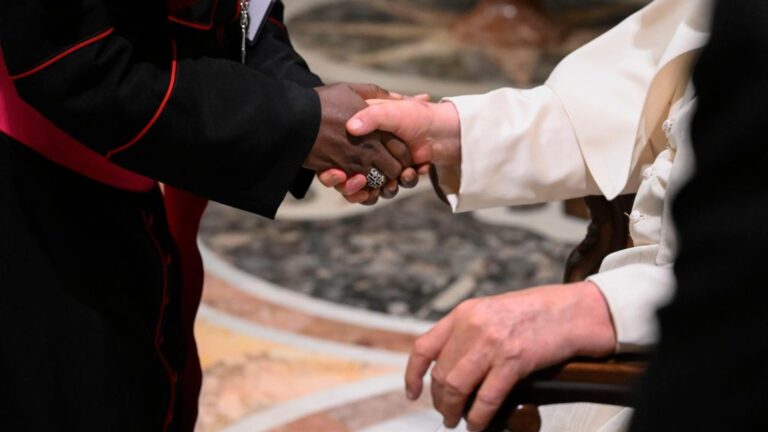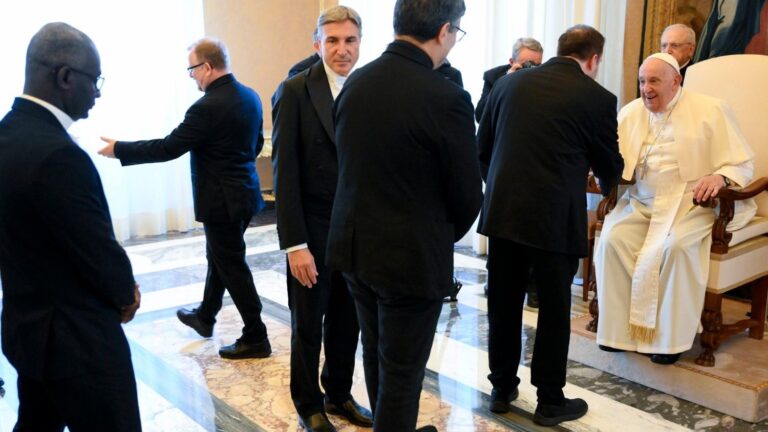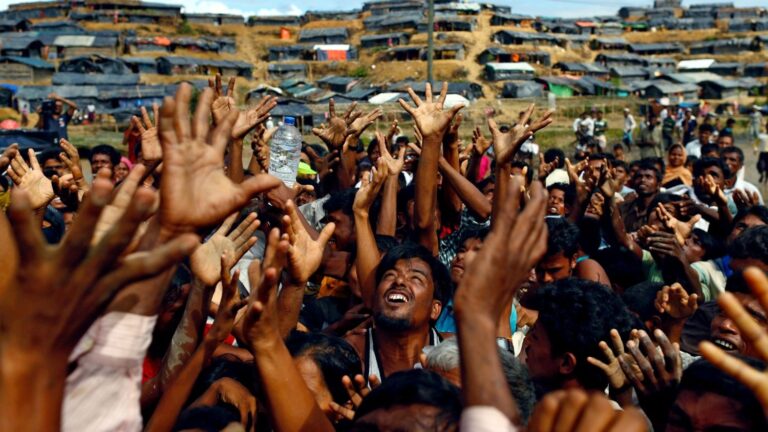Holy See urges debt cancellation for small poor island nations
Addressing the Fourth International Conference on Small Island Developing States in Antigua and Barbuda, Vatican representative Msgr. Robert Murphy calls on developed countries to cancel their debt to support their resilience and development in the face of climate and environmental crises.
By Lisa Zengarini
The Holy See has called for increased efforts by developed countries to help small island developing States (SIDS) build their resilience to growing climate and environmental challenges and achieve their sustainable development goals by canceling their debt .
“Debt cancellation is not just a matter of economic or development policy, but a moral imperative rooted in the principles of justice and solidarity,” said Msgr. Robert Murphy Tuesday.
Between the crossfires of the climate, economic and debt crises
The Vatican representative was speaking at the Fourth International Conference on Small Island Developing States (SIDS), taking place in Antigua and Barbuda from May 27-30, under the theme “Charting a Path to Resilient Prosperity” .
SIDS comprise 37 UN member countries and 20 associate members of UN regional commissions and have met every ten years since 1994 to address common issues and concerns.
Small island nations are now caught in the crossfire, including climate change and biodiversity loss, the economic and social impacts of COVID-19, and the debt crisis. The pandemic has had a huge impact on all of these countries, especially those that rely on tourism, while climate action is becoming increasingly urgent as weather-related disasters double in two decades, island nations being both the most vulnerable and the least responsible.
The four-day UN-organized event, attended by world leaders, representatives from the private sector, civil society, academia and youth, aims to assess the capacity of SIDS to achieve sustainable development, including the 2030 Agenda and the Sustainable Development Goals (SDGs). .
Participants reviewed SIDS' progress on sustainable development and agreed on a new agenda of action focused on practical and effective solutions, and for forging new partnerships and cooperation at all levels over the next decade.
Need for a bold approach to debt to support resilience and development
Faced with the “unique combination of aggravating vulnerabilities” in these countries, Mgr. Murphy reiterated the urgent need for a “bold approach to debt” as part of the support needed by SIDS.
“Debt obligations,” he said, “force these countries to make untenable choices between ensuring growing interest payments or allocating resources to invest in health, education, protection systems social and infrastructure”.
“Moreover, debt perpetuates a cycle of dependency that hampers SIDS' ability to address pressing issues such as poverty eradication and climate change. »
By alleviating the debt burden, SIDS can therefore “regain the freedom to pursue sustainable development paths that respect the dignity of all people,” Msgr. » said Murphy.
Forgive the debts of countries that will never be able to repay them
Noting that debt cancellation is not only a matter of economic policy or development, but a moral imperative of justice and solidarity, the Vatican representative therefore urged developed States to consider this measure as a factor of “resilient prosperity”, echoing Pope Francis’ call to “forgive the debts of countries that can never repay them. »






